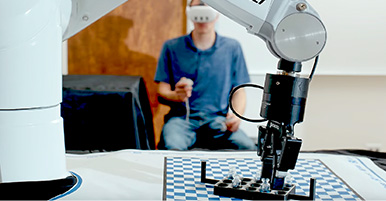Citation
Schillaci, R. S., Parker, C. E., Grigal, M., & Paiewonsky, M. (2021). College-Based Transition Services’ Impact on Self-Determination for Youth with Intellectual and Developmental Disabilities. Intellectual and Developmental Disabilities, 59(4), 269-282. doi:10.1352/1934-9556-59.4.269
Abstract
Most youth in transition services with labels of intellectual or developmental disability (IDD) have poorer employment outcomes than their peers with other or without disabilities. One alternative approach to address this challenge provides youth with IDD access to transition services in the context of a college or university campus. College-based transition services (CBTS) provide students with IDD during their final two to three years of secondary education access to college courses, internships, and employment. A quasi-experimental design evaluation of one college-based transition services model, Think College Transition, found that, after controlling for student baseline scores, the college-based transition services had a significant effect on students’ scores of self-determination at post-test. Implications for further refining the model are discussed.


